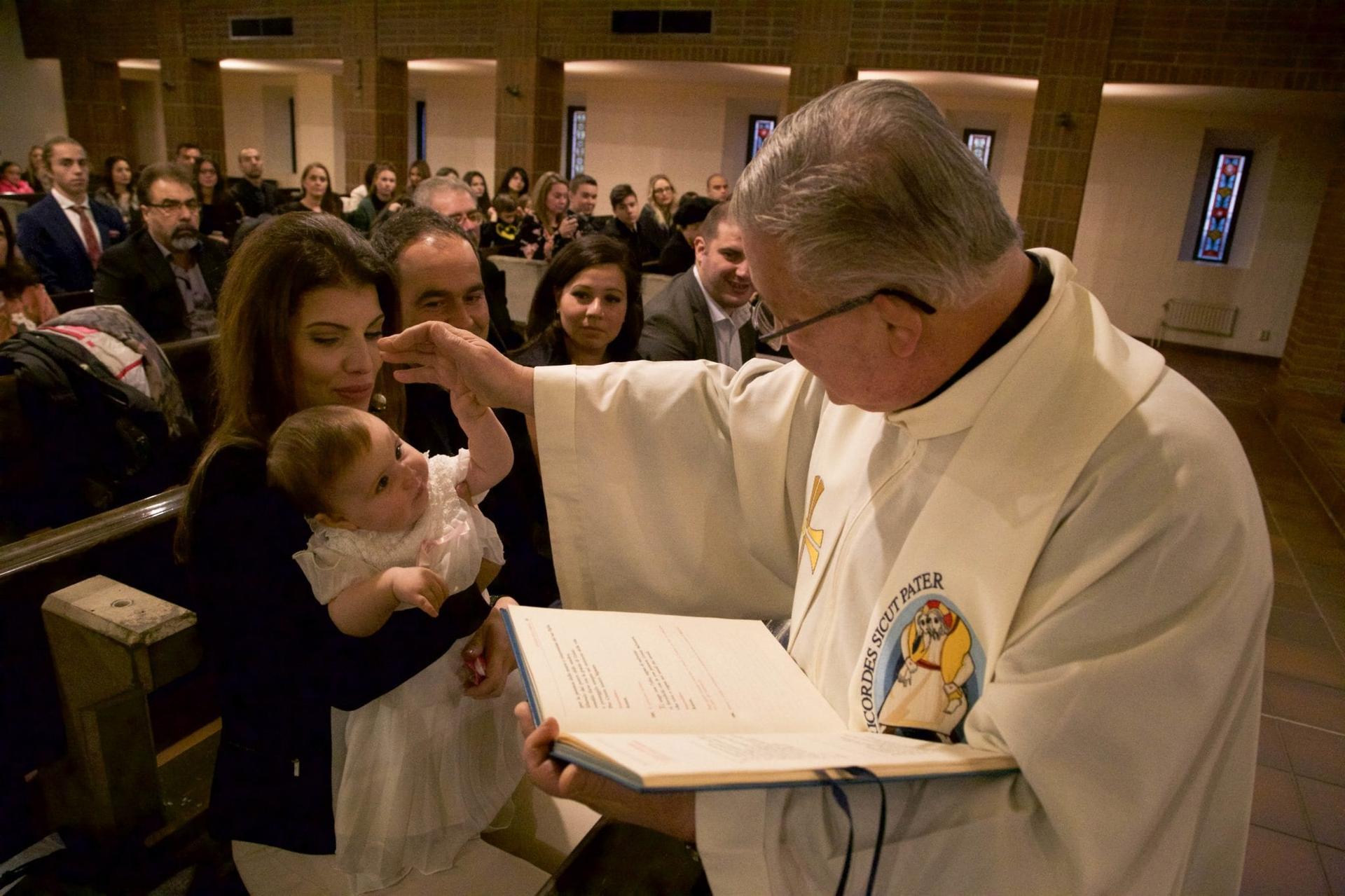As the Church moves from the sacred events of Bethlehem, she directs her attention to the shores of the Jordan River. There at the Jordan, John the Baptist meets the Lord Jesus and baptizes him. It is a pivotal event, one which marks the beginning of the Lord’s public ministry.
This Sunday, the Church celebrates this momentous event. In the Mass, believers are spiritually taken to the Baptism of the Lord and are called to relive and remember the power and glory of this moment: God the Father proclaims divine pleasure toward his only beloved Son and the Holy Spirit descends like a dove upon the Son.
In this singular action, the Divine Family of Father, Son, and Holy Spirit inaugurate the Lord’s public ministry and initiate the active work of humanity’s redemption.
As the Lord’s baptism begins his public ministry, so – in similar fashion – our baptism is the birth of our discipleship. It is when God chooses us, adopts us, and welcomes us into his family. By our baptism, we become living members of the very Body of Christ. We are incorporated into his work for the salvation of humanity.
Every Sunday is the Lord’s Day and, as a little Easter, every Sunday is a baptismal celebration. The Sabbath, therefore, is filled with actions that both renew and complete our baptism. As we enter the place of worship, we bless ourselves with holy water reminding ourselves of the waters of baptism, we repeat the Creed in which we declare our belief: “I confess one baptism for the forgiveness of sins,” and we participate in the baptismal sacrifice and meal of the Eucharist, which culminates in the reception of Holy Communion. In all these ways, we are affirming and fulfilling our baptismal in this life, and so stirring into flame our immense hope for everlasting life.
Throughout his apostolic letters, Saint Paul gives us a developed theology of baptism. He tells us that baptism is the new circumcision, which was the bodily mark that a man was a member of the Chosen People. Now, such an act is of the spirit. It is baptism. And it is open to all, men and women, Jew and Gentile. The status of chosen son (and daughter) is now given through the waters of baptism.
In our baptism, in spite of whomever we might be in this world, we become a member of the Body of Christ. We share in the Lord’s Sonship to the Father and so become siblings to Christ and siblings to one another. This baptismal identity rocked the ancient world, as slave and nobleman worshipped together, as men and women were seen as equals, and as Jew and Gentile embraced as family. This baptismal identity, if taken seriously, can still rock our world today.
By living together as members of the Body of Christ, we are all called to follow his way of life. We are pushed and encouraged to live by “the most excellent way of love” and to adhere to a new standard of being, one which includes everything we do: from how we show mercy, to our approach towards the poor and sick, to the treatment of our bodies, to how we spend money, and to every other action – however important or trivial – in this life. Our baptism is about a constant dying to self in the service of Jesus Christ and the continuation of his saving mission in our world.
The demands of such a baptismal vocation can be daunting. This is why Saint Paul asks: “Or aren’t you aware that all of us who were baptized into Christ Jesus were baptized into his death? We therefore were buried with him through baptism into death, in order that, just as Christ was raised from the dead through the glory of the Father, we too may walk in newness of life.”
These are the truths and challenges that are put before us on this feast of the Baptism of the Lord. They remind us that baptism is not solely a sacramental ceremony, but is also a complete way of life. Baptism is not simply a ritual, but also involves the new identity of the baptized, and the baptismal way of life to which we are all called.
We have to decide whether or not we will heed the summons of our baptism and seek the graces of conversion and a deeper commitment to the way of the Lord Jesus. Today’s feast day echoes the invitation to love, forgive, welcome, and serve in Christ’s name. The choice to accept, neglect, or decline is ours.











